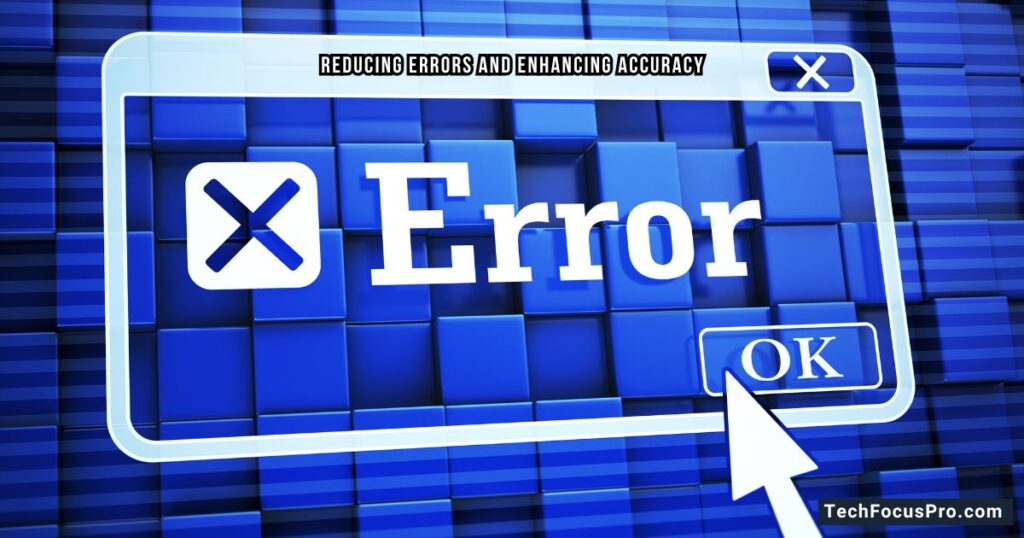Maximizing Efficiency in Law Firms with Automated Document Solutions

In the professional world, time is a critical resource. Law firms are increasingly seeking ways to streamline their processes and improve efficiency. One of the most effective methods for achieving this is automation. But how do these solutions truly benefit the field? Let’s explore how automation can save time, reduce errors, and make operations more efficient.
The Growing Need for Automation in Law Firms
Legal professionals constantly handle complex and time-sensitive tasks, making document automation for law firms a valuable solution. Drafting, reviewing, and managing files can consume much of a professional’s day. Automation can complete these repetitive tasks faster and with fewer errors. As companies grow and take on more clients, the demand for efficient management becomes even more pressing.
Automated solutions offer a way to manage increasing workloads without sacrificing quality or attention to detail. It has become an essential tool for those seeking to maximize efficiency while maintaining high standards of accuracy and compliance.
Read Also: How to Convert Your WhatsApp Chats into PDF Format?
How Document Automation Works
Automation involves using software that generates files from pre-designed templates. Professionals input relevant data into the system, and the software then creates customized materials in a fraction of the time it would take manually. These solutions can be tailored to a company’s specific needs, allowing for flexibility while ensuring consistency in language and formatting.
For instance, contracts, wills, and pleadings can all be generated using automated systems, ensuring they meet the required standards every time. No more worrying about missed clauses or formatting errors—automation takes care of that. And doesn’t that sound like a relief?
Reducing Errors and Enhancing Accuracy

One of automation’s most significant advantages is reducing human error. Even the most diligent professionals can make mistakes when drafting lengthy documents. With automated systems, these risks are significantly minimized. The software follows strict templates and rules, ensuring everything is free of errors and omissions.
In the professional world, a single error can have serious consequences. By automating the process, companies save time and protect themselves from costly mistakes. Wouldn’t it be reassuring to know that every piece you produce is accurate and reliable?
Boosting Productivity and Saving Time
Time is money, especially in firms where billable hours are the norm. Automation allows employees to focus on more strategic and client-centered tasks rather than spending hours on paperwork. Automating document creation can reduce the time spent on routine tasks by as much as 50%, allowing professionals to be more productive.
For example, instead of manually drafting a contract for every client, staff can use a pre-set template that adapts to the specifics of each case. This frees time to focus on strategy, negotiations, and client relations. In a profession where attention to detail is paramount, wouldn’t it be great to dedicate more time to the areas that truly matter?
Improving Client Satisfaction

Clients expect swift and accurate service from their representatives. Automation helps firms meet these expectations by increasing efficiency, reducing turnaround time, and improving the quality of services. Faster creation means clients receive results sooner, which can be crucial in time-sensitive cases.
Automation is no longer a luxury but a necessity in today’s industry. By adopting document automation for law firms, companies can reduce errors, improve productivity, enhance client satisfaction, and ensure compliance with standards. In a competitive industry, adopting these solutions allows firms to stay ahead while focusing on the more intricate aspects of their work. This shift not only boosts efficiency but also positions firms as forward-thinking leaders in the legal landscape.
Conclusion
In conclusion, automated document solutions represent a transformative tool for modern law firms aiming to maximize efficiency and productivity. By adopting these technologies, firms can streamline their document-related processes, allowing legal professionals to focus on strategic tasks that demand their expertise. Furthermore, the ability to customize these solutions ensures they fit seamlessly into existing workflows, addressing specific requirements and enhancing operational effectiveness.
With robust security features and the capacity to significantly reduce repetitive work, automated document solutions not only safeguard sensitive information but also drive consistency and accuracy across all legal documents. As law firms continue to adapt to a rapidly changing technological landscape, embracing automation will be crucial in maintaining a competitive edge and delivering superior legal services.
FAQs
What are automated document solutions?
Automated document solutions are technological platforms or software designed to streamline and automate the creation, management, and storage of legal documents, thereby reducing manual workload and improving efficiency.
How can automated document solutions benefit law firms?
These solutions can significantly enhance productivity by minimizing repetitive tasks, reducing human error, and saving time which can be allocated to more strategic legal work. They also improve accuracy in document generation and ensure consistency across all documents.
Are automated document solutions secure for handling sensitive legal information?
Yes, most automated document solutions come with robust security measures, including encryption and access controls, ensuring that sensitive legal information is safeguarded against unauthorized access or breaches.
Can these solutions be customized to fit specific law firm needs?
Absolutely. Automated document solutions are often customizable, allowing law firms to tailor them according to specific workflows, legal practices, and compliance requirements, ensuring a more personalized and effective solution.
What types of documents can be automated using these solutions?
Common automated documents in law firms include contracts, agreements, court forms, client correspondence, and many other routine documents that require standard legal formatting and language.






